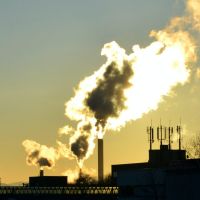Brussels to weigh in on waste-to-energy
Ez is érdekelhet

The European Commission aims to bring its energy efficiency and circular economy policies closer together with an initiative on waste-to-energy.
The Commission will table a policy paper on exploiting the potential of waste-to-energy next year, according to a draft paper on the EU energy union seen by ENDS.
The Commission will publish its wide-ranging plans for turning the EU into a low-carbon economy with an integrated energy system and secure supplies on Wednesday.
The draft version promises a new renewable energy directive for 2030 and a policy for sustainable biomass and biofuels in 2016 or 2017. Legislation to ensure the EU’s 2030 renewables target is met cost-effectively is also planned.
This year, the Commission will outline a new electricity market design to help integrate renewable energy and to stop uncoordinated development of capacity mechanisms by member states nervous about ‘keeping the lights on’, with legislative proposals to follow next year.
The Commission also plans to convene an infrastructure forum to check on governments’ implementation of power interconnection between countries.
Brussels will encourage member states to “give energy efficiency primary consideration in their policies”. It will target buildings and the transport sector in particular with a strategy to reap efficiency gains from district heating this year, tighter emission performance standards for cars and vans in 2016-2017 and a plan on alternative fuels in 2017.
Meanwhile, the draft pledges more efforts to develop a strategy to prop up liquefied natural gas supplies, to establish strategic partnerships with key producing and transit countries and to look into voluntary mechanisms for collective gas purchasing.
Green groups have labelled the plan incoherent as it promotes renewable energy and unconventional fossil fuels in the same sentence, and calls for new infrastructure to bring gas to Europe while committing to tackle climate change.
Given that it takes ten years to plan and build a pipeline, the EU would need to decommission the planned gas projects almost as soon as they have come online if it is serious about its climate targets, said Brook Riley of NGO Friends of the Earth.
Source: ENDS Europe







